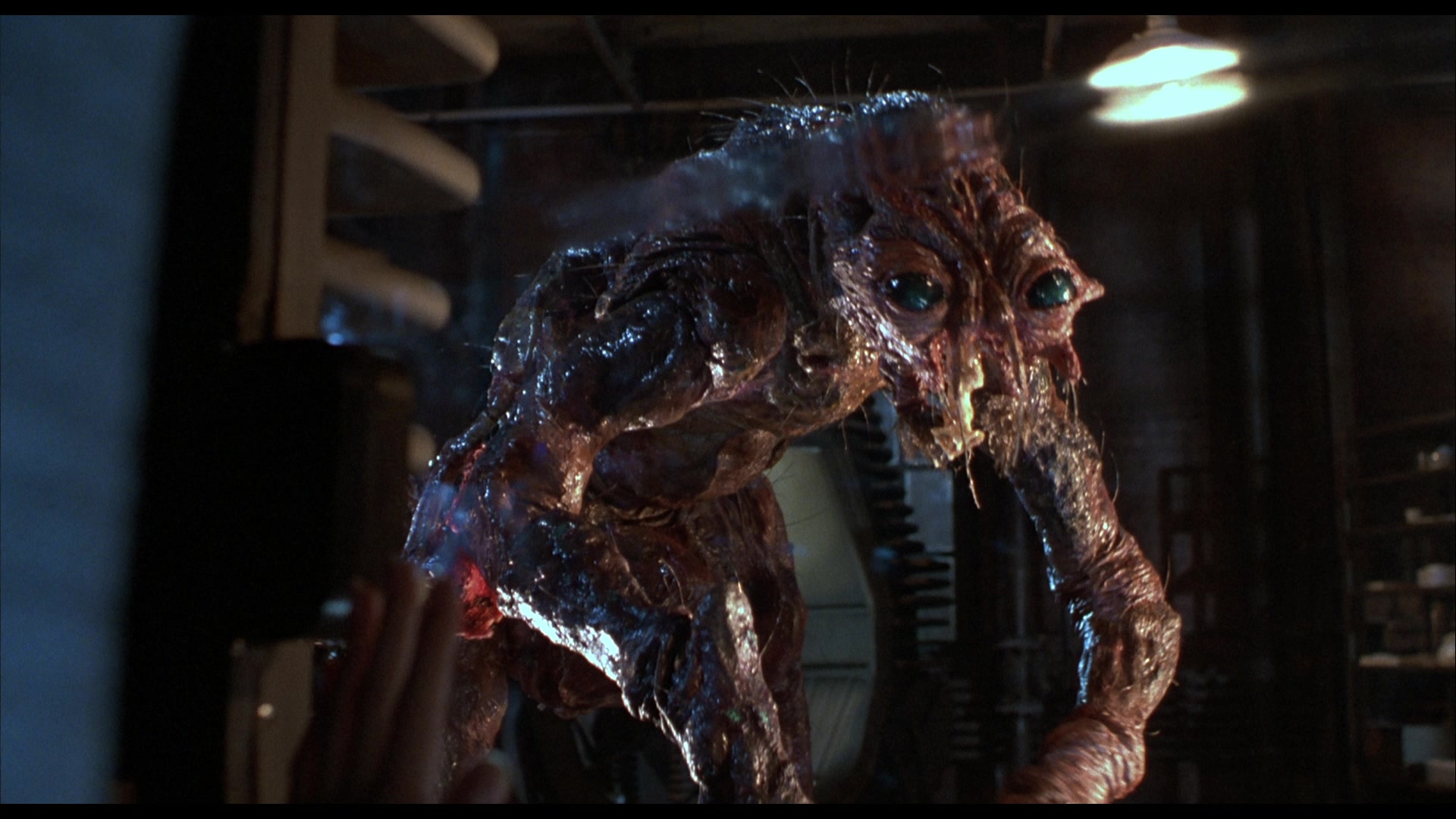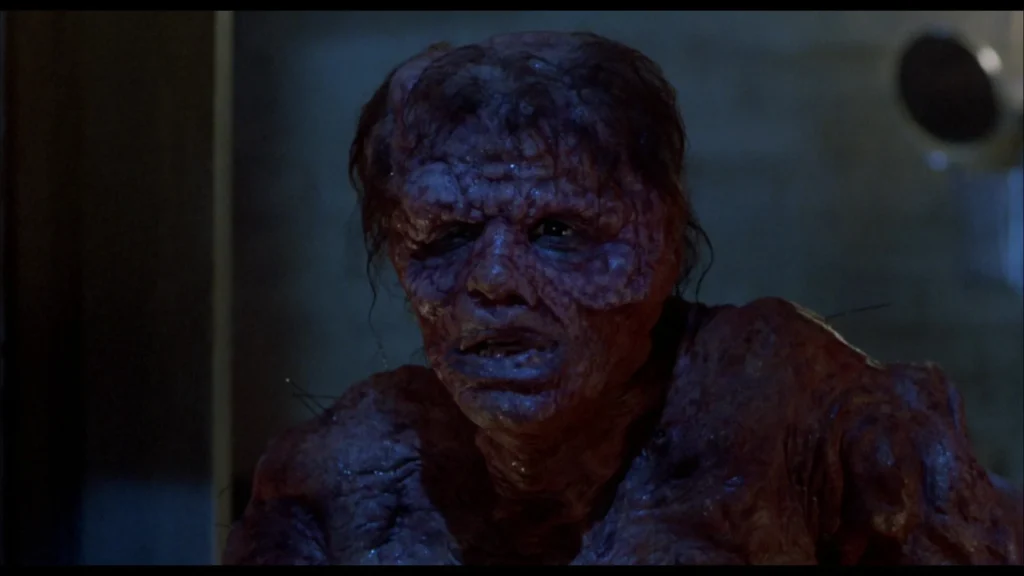
The Fly (1986) follows Seth Brundle, a scientist whose experiment goes horribly wrong, turning him into a grotesque hybrid of man and fly.
The story isn’t only about the shocking transformation, but about what happens to a person’s mind and identity when their body begins to betray them. It explores themes of loss, fear, and what it means to lose control over yourself.
Seth Brundle: Losing Control of Self
Seth starts as confident and full of hope, a man chasing a breakthrough in teleportation. After his DNA merges with a fly’s, his body starts changing in horrifying ways. This change causes a deep psychological breakdown. His sense of who he is starts to slip away as his body becomes less human.
The film shows the terror of watching your own body turn into something alien, something you can’t control. Seth’s mental and physical decay happen together, reflecting a painful loss of identity and control.
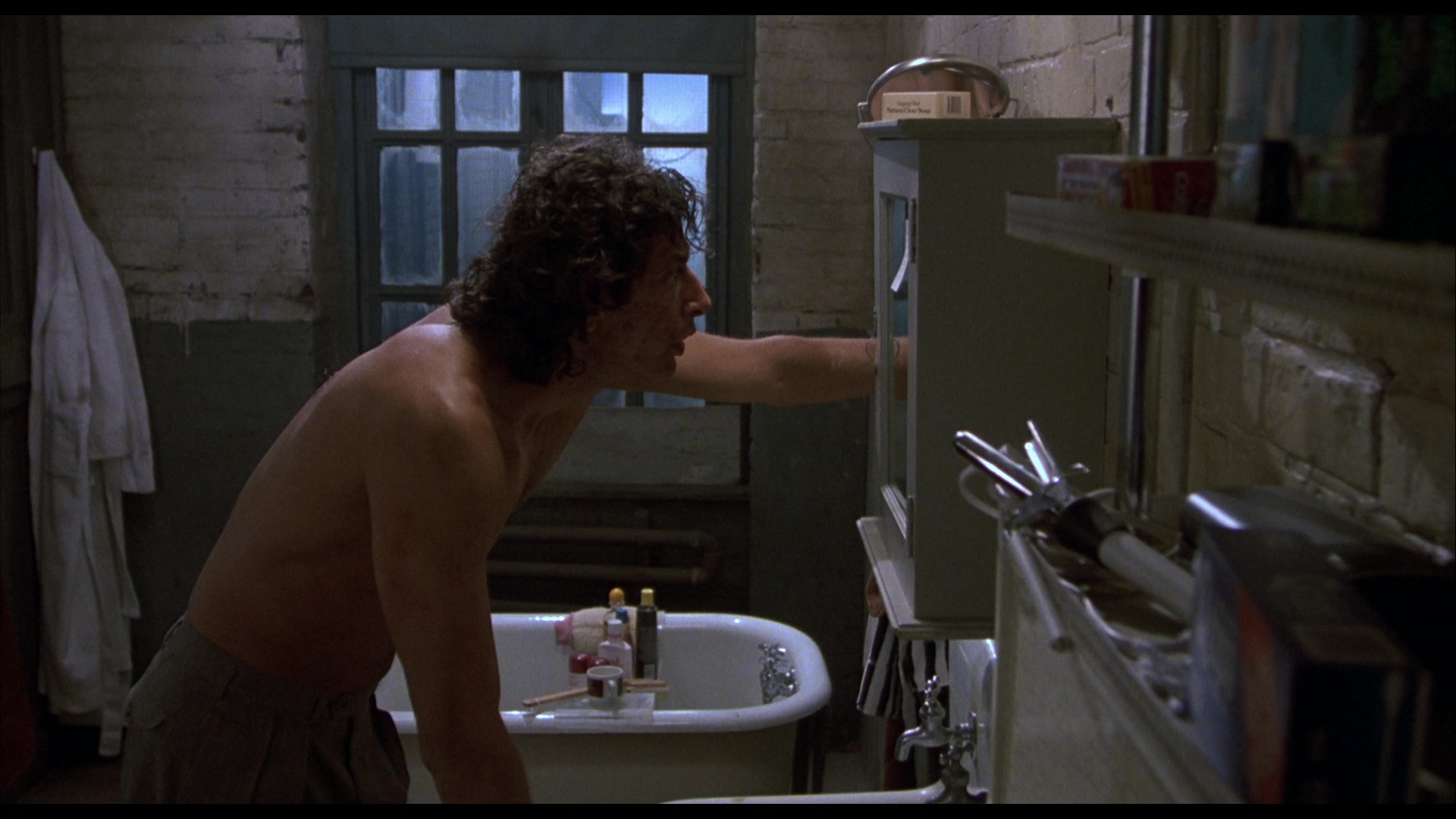
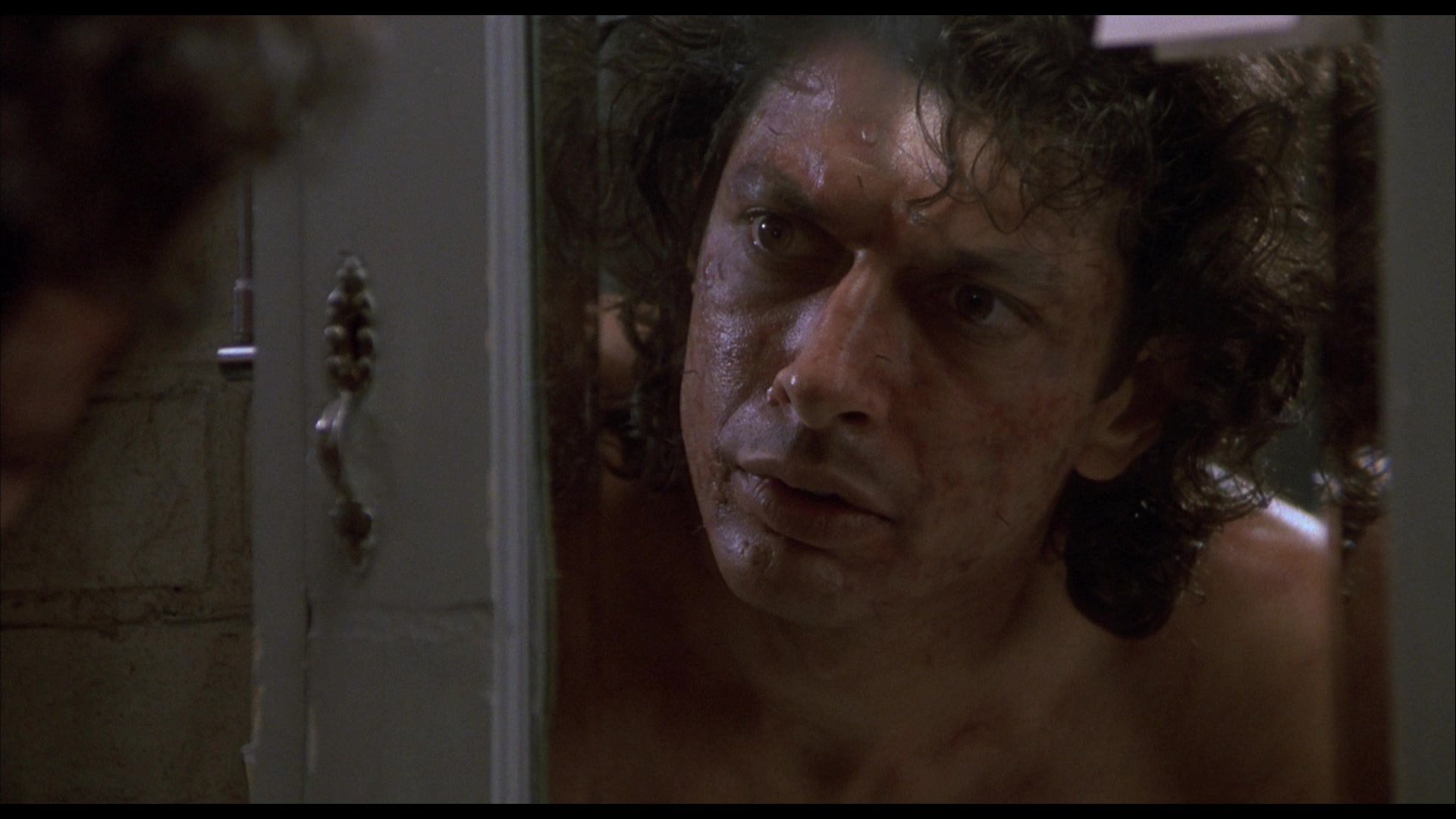
The Mirror: Facing a Stranger
There’s a powerful scene where Seth looks in the mirror and barely recognizes himself. The mirror becomes a symbol of his fractured identity. Instead of seeing the man he used to be, he sees a monster.
This moment captures the pain of dissociation — when your mind can’t accept the changes your body has undergone. It’s the confrontation with the reality that you are no longer who you once were.
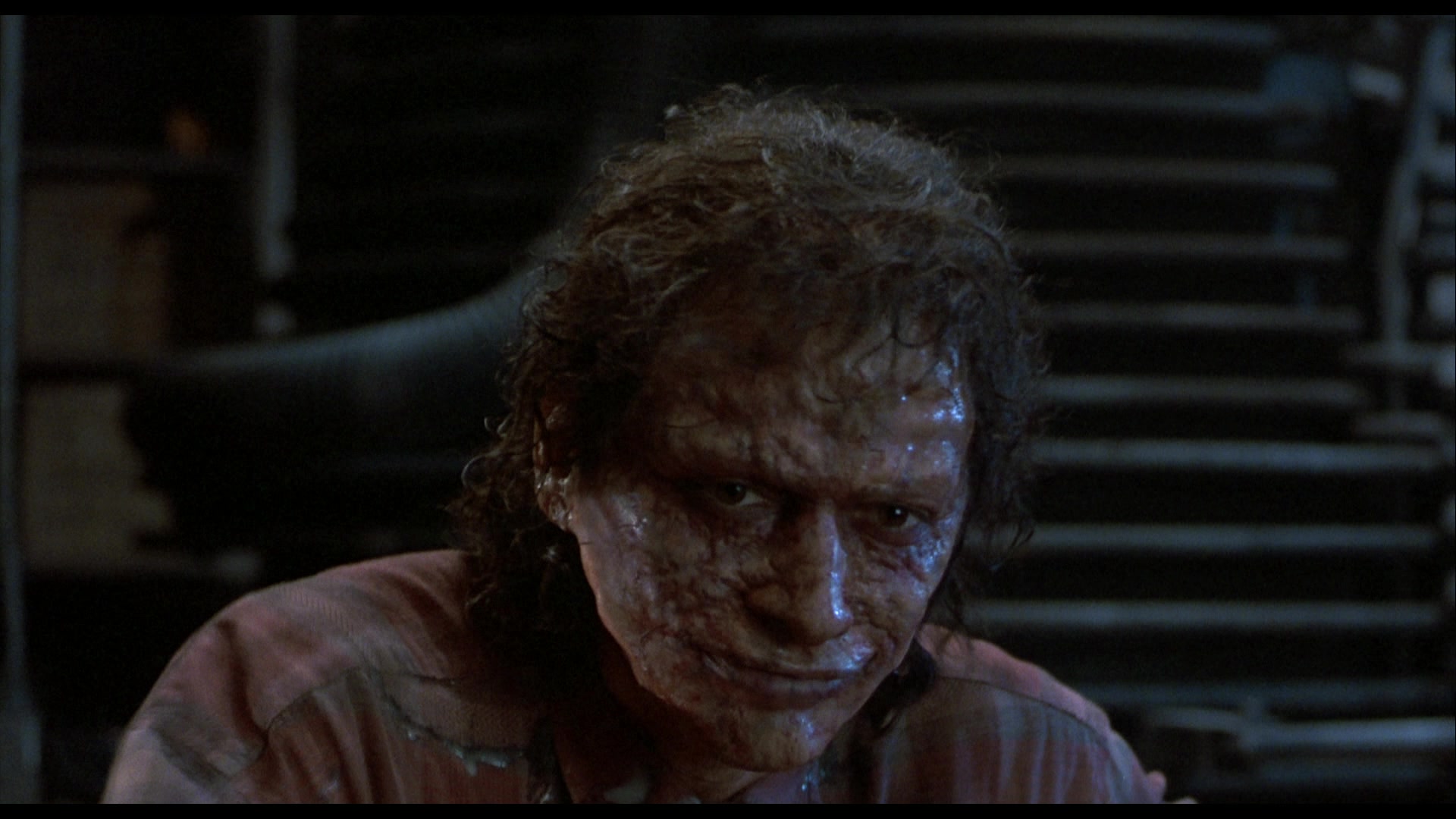
The Fly Inside: The Part of Yourself You Can’t Control
The fly that merges with Seth’s DNA represents a darker, uncontrollable part of him. As the changes progress, this other self takes over more and more.
Psychologically, this can be seen as a split within the self — where a part becomes destructive or alien, almost like an intruder inside your own mind.
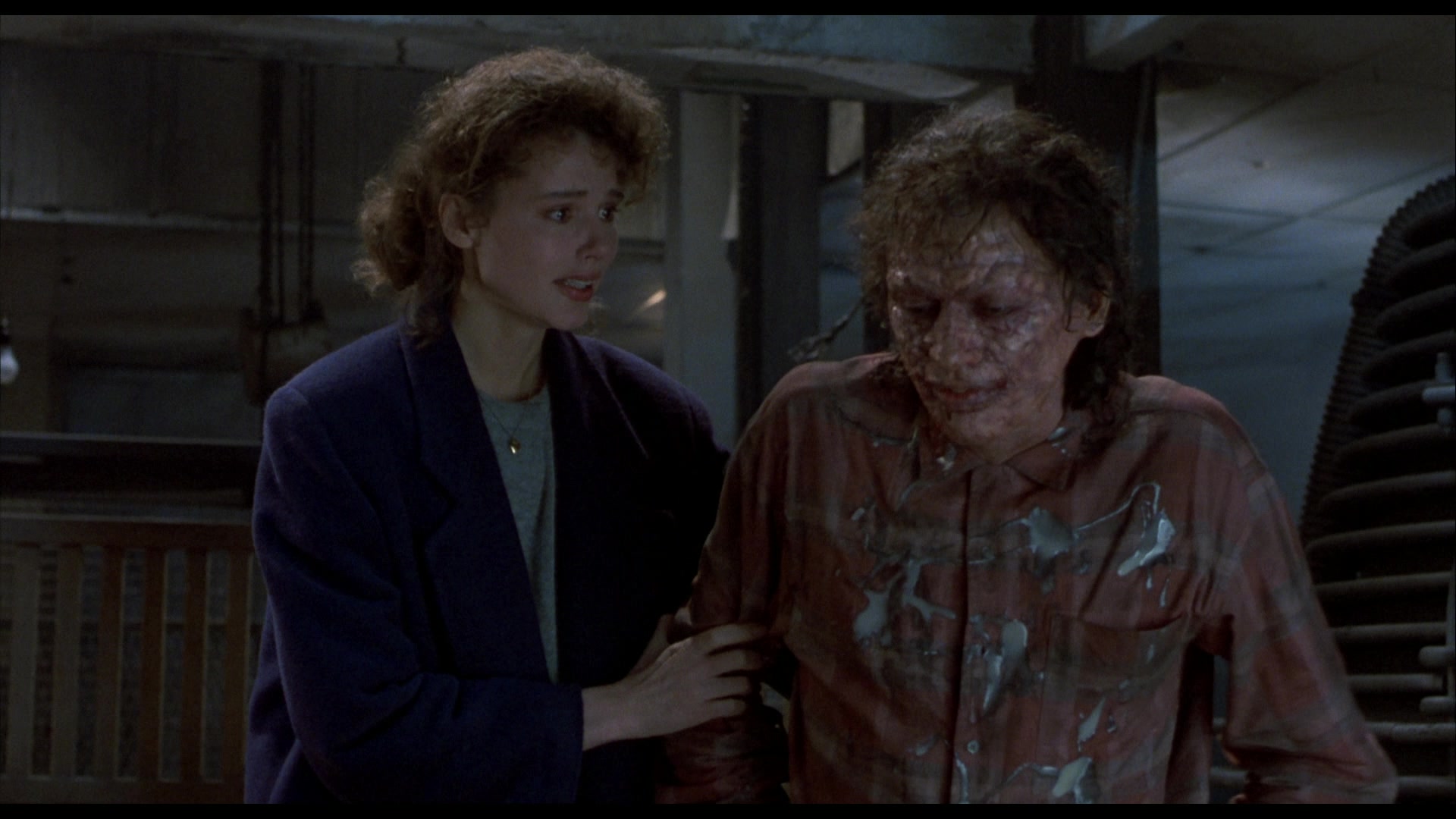
Veronica Quaife: Love and Caregiver Trauma
Veronica, Seth’s girlfriend, faces her own trauma. She watches the man she loves deteriorate physically and mentally and feels helpless.
Her pain reflects what happens to people who care for loved ones going through illness or decline. It’s a difficult balance between love, fear, and grief.
Science, Ambition, and Consequences
Seth’s story also touches on the dangers of unchecked ambition. His desire to push scientific boundaries leads to devastating consequences.
This represents the psychological cost of trying to control nature and failing — the shattering of dreams and the collapse of the future you imagined for yourself.
The Horror of Losing Yourself
In the end, The Fly is about more than just the physical horror. It’s about the slow, terrifying loss of identity and humanity. Seth’s transformation is a reminder of how fragile the self really is.
The real horror lies in becoming someone unrecognizable, trapped inside a body and mind that no longer feel like your own.
